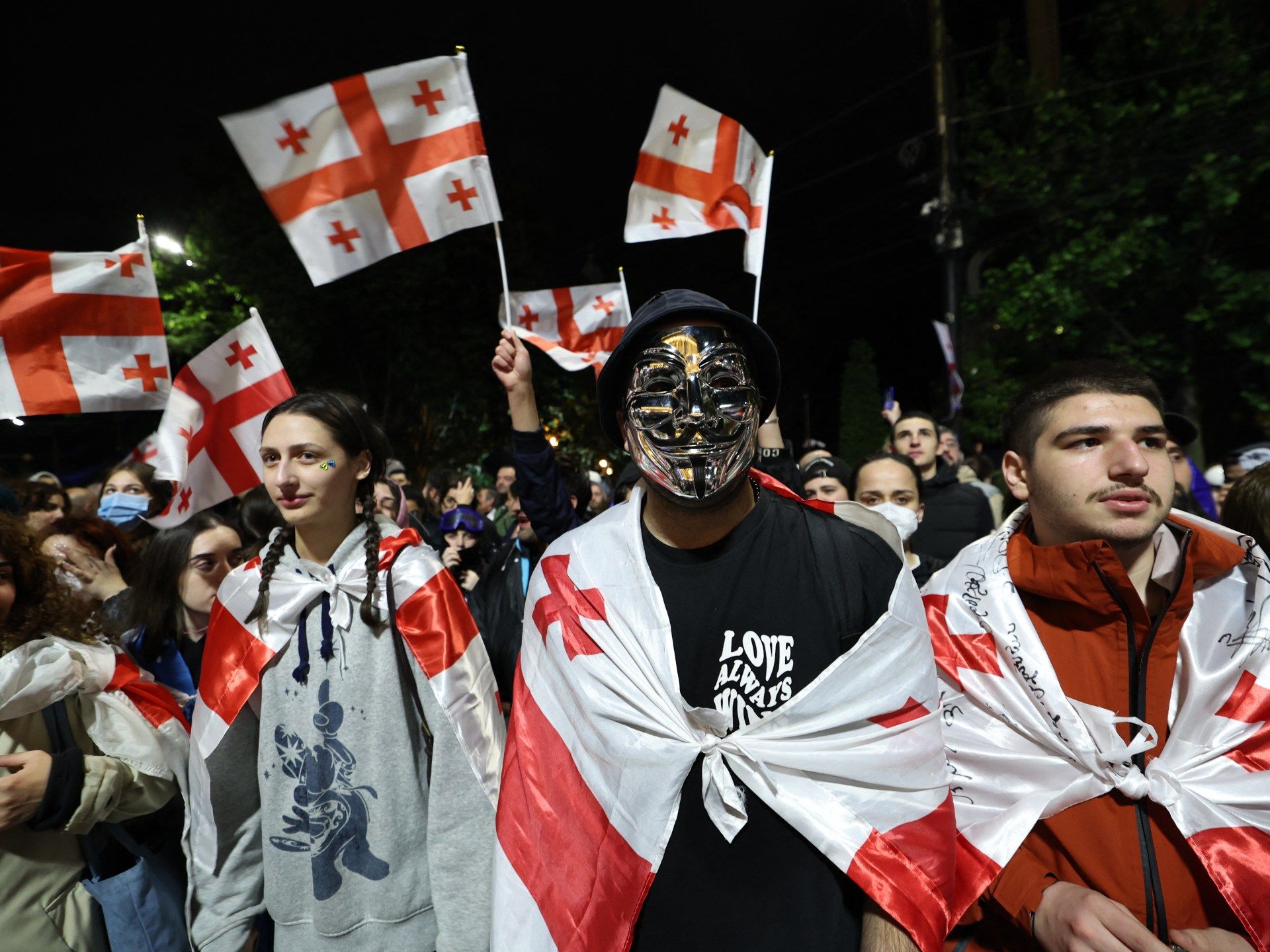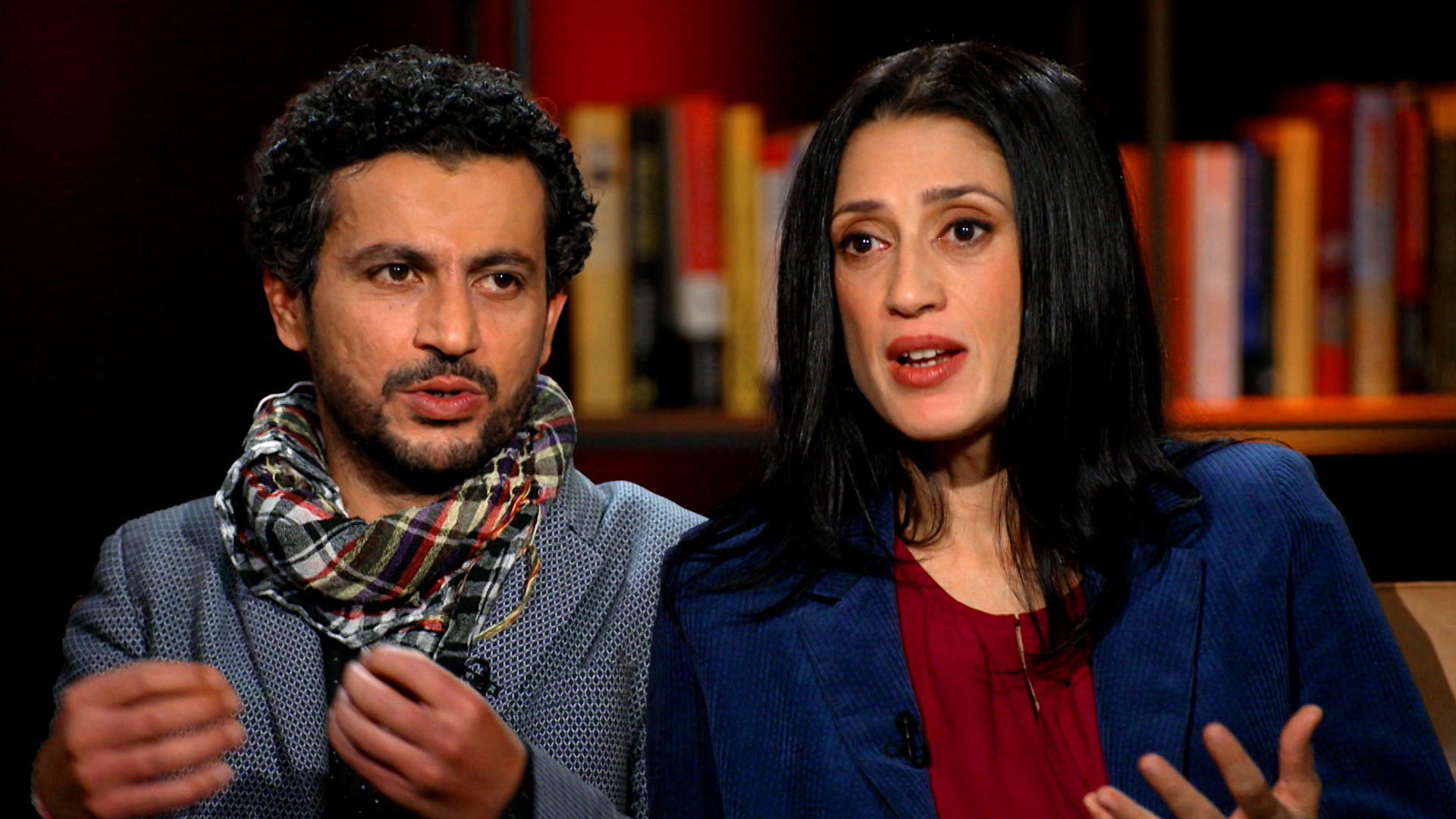Protesters are angered by the government's efforts to pass a law against “foreign agents” that mirrors repressive Russian legislation.
Thousands of Georgians have joined fresh protests in Tbilisi against a Russian-style “foreign agents” bill, as the government insisted it would press ahead with the legislation even after some of the biggest protests since the Union's independence. Soviet in 1991.
Protesters began gathering around 10:00 p.m. (18:00 GMT) on Sunday, with many vowing to spend the night outside to prevent lawmakers from entering the building for the third reading of the bill on Monday.
Georgian Prime Minister Irakli Kobakhidze previously said he aimed to pass the bill this week and threatened protesters with prosecution.
The bill requires organizations that receive more than 20 percent of their funding from abroad to register as agents of foreign influence or face punitive fines.
Carrying flags of the European Union and Georgia, protesters invaded Tbilisi's main Rustaveli Avenue, as Georgia's pro-EU President Salome Zurabishvili warned demonstrators to beware of “provocations,” days after some activists They reported harassment and the protesters were met with water cannons and tear gas.
Authorities warned they would arrest anyone who tried to block parliament.
But protesters seemed determined to prevent the bill, which they fear will thwart Georgia's goal of joining the European Union and draw comparisons with Russia's 2012 “foreign agents” law, which has been used to harass critics. of the government, becomes law. .
“We, as students, don't see any future with this Russian law,” said Nadezhda Polyakova, 20, who was born and raised in Georgia but is ethnically Russian.
“We are with Europe,” he added.
“I'm not going anywhere. It's my 35th day of protest and I'll be here all night,” said student Vakhtang Rukhaia. “I'm so angry and angry.”
The protests have been dominated by Georgia's younger generation, and many of them are still in school or college.
“We are not afraid. We are from Generation Z and we are Georgians,” said Nino, 19, who did not want to give her last name, concerned about her mother's job in the state sector.
The ruling Georgia Dream party initially tried to push through the law last year, but was forced to abandon the plan after a massive backlash.
Since then, the party's billionaire founder and financier, Bidzina Ivanishvili, has declared NGOs internal enemies, accusing them of working for foreign governments and planning a revolution.
The bill was revived with only one change in April. Under the latest version, NGOs, media and journalists must register as an “organization pursuing the interests of a foreign power” rather than an “agent of foreign influence.”
Protesters accuse the government of returning the former Soviet country to Moscow's orbit after a 2008 war in which Russia seized the Georgian region of Abkhazia.
Georgia, which has traditionally had warm relations with the West, gained EU candidate status in December.












